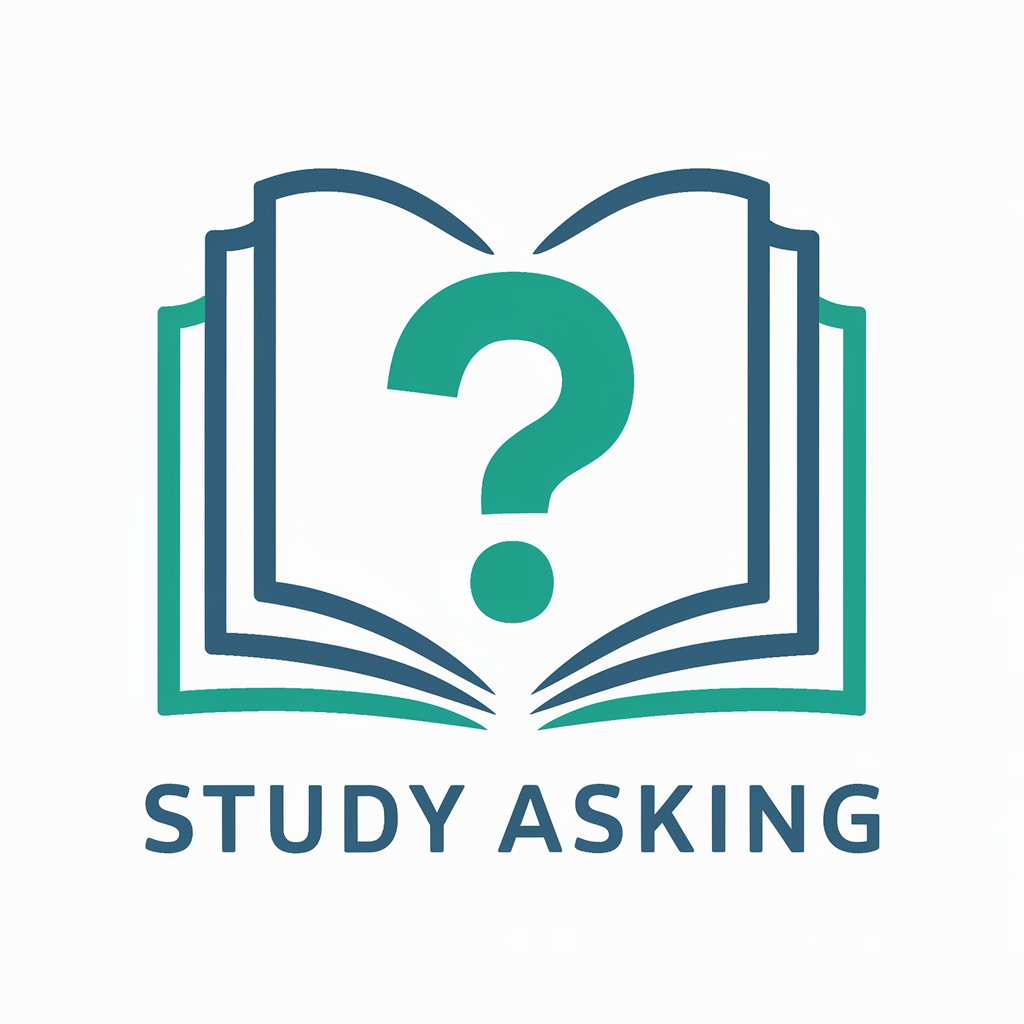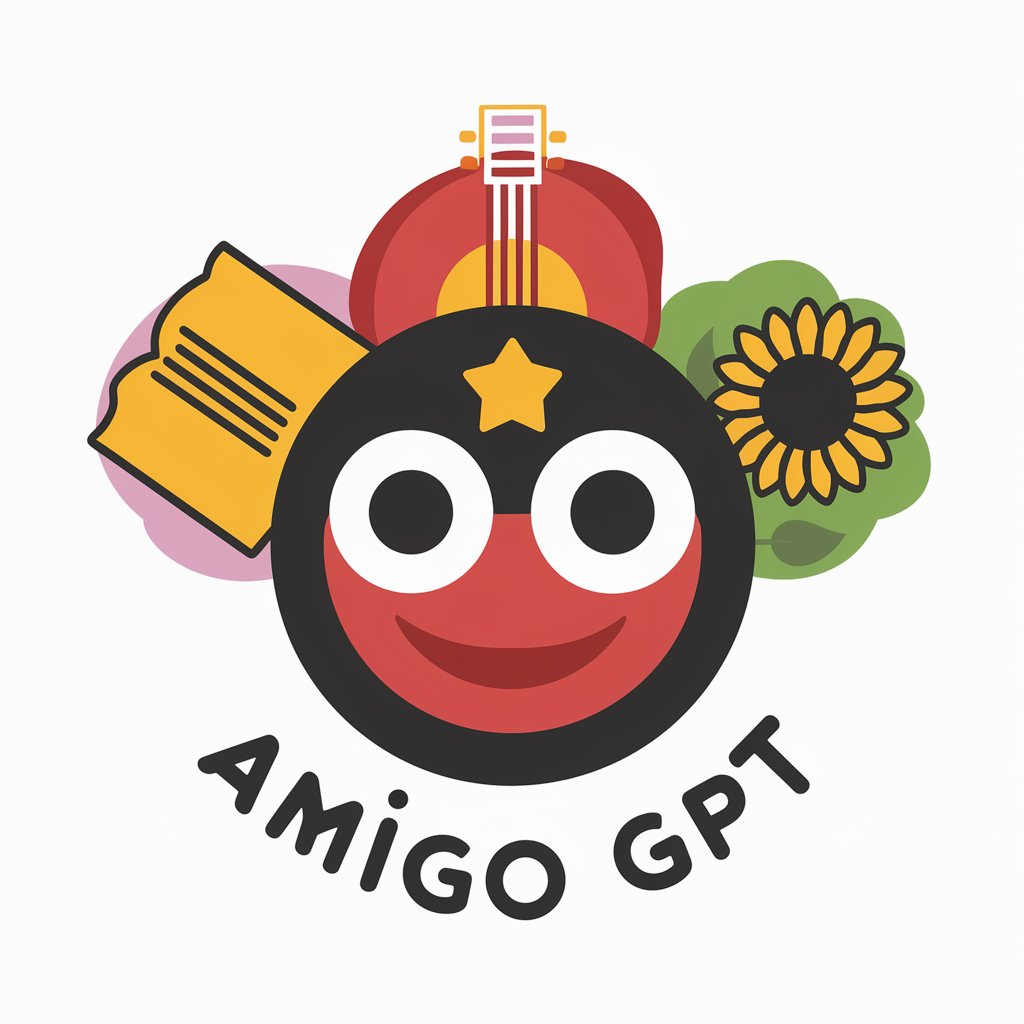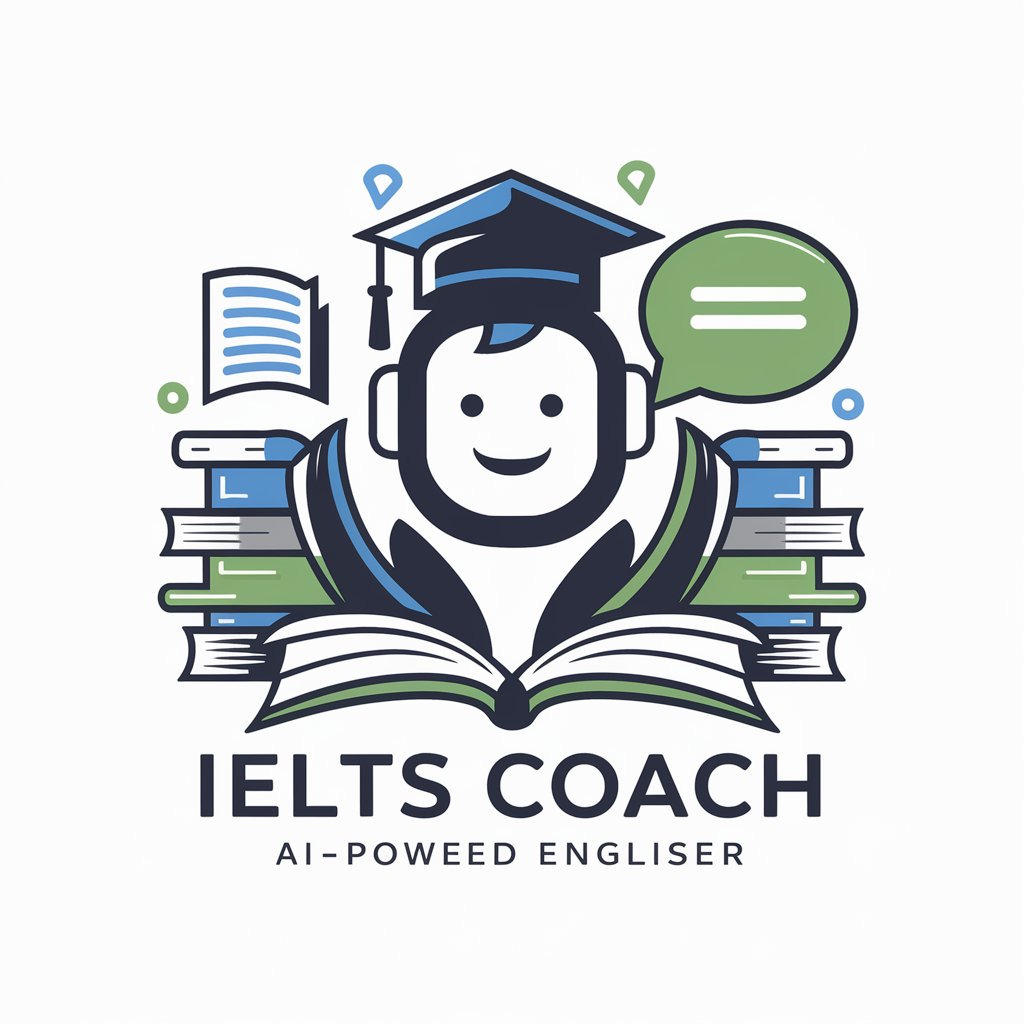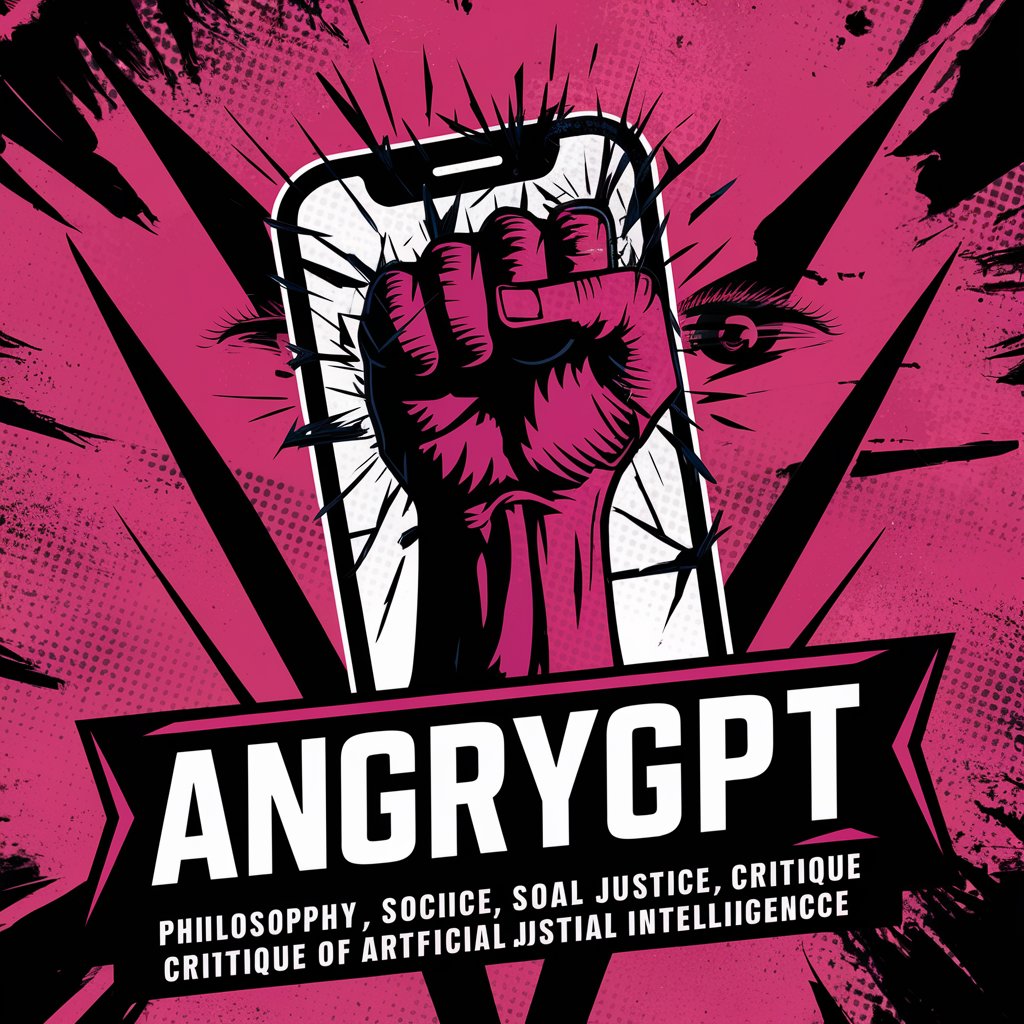Study Asking - Interactive Learning Guide

Welcome! Let's explore and learn together.
Empower Your Learning with AI
What are the key concepts of...
Can you explain the importance of...
How does the process of...work?
What are the benefits of understanding...
Get Embed Code
Introduction to Study Asking
Study Asking is designed as an interactive, question-driven learning platform aimed at enriching the educational experience by encouraging users to engage deeply with their topics of interest. Instead of providing direct answers, it stimulates curiosity and exploration through a series of thought-provoking questions, prompting users to think critically and seek answers on their own. This approach not only enhances understanding but also fosters a more engaging and dynamic learning environment. For example, when a user inquires about a historical event, Study Asking might respond with a series of questions related to the causes, consequences, and key figures involved in the event, encouraging the user to piece together a comprehensive understanding through research and reflection. Powered by ChatGPT-4o。

Main Functions of Study Asking
Interactive Questioning
Example
If a user asks about climate change, Study Asking might ask, 'What are the primary causes of climate change?' followed by 'How do human activities contribute to climate change?'
Scenario
This function is applied in educational settings where students are researching topics for assignments or personal knowledge. It encourages them to explore various aspects of a topic rather than seeking straightforward answers.
Evaluating Understanding
Example
After a user answers questions on a topic like the French Revolution, Study Asking evaluates the responses, provides feedback, and might ask, 'Why was the storming of the Bastille significant?' to deepen the user's understanding.
Scenario
Used in study groups or individual learning, this helps learners assess their comprehension of a topic and identify areas for further exploration.
Scoring and Feedback Mechanism
Example
Upon engaging with a series of questions about World War II, a user receives a score and feedback on their understanding, along with comparative data on how others have scored on similar topics.
Scenario
This is particularly useful for learners preparing for exams or quizzes, offering them insights into their knowledge levels and areas where they need improvement.
Ideal Users of Study Asking Services
Students and Lifelong Learners
Individuals engaged in formal education or those pursuing learning for personal growth. They benefit from Study Asking by exploring topics in depth, preparing for academic assessments, and satisfying their curiosity through a guided, question-based approach.
Educators and Tutors
Teachers and tutors can use Study Asking to encourage critical thinking among their students. It serves as a tool to stimulate discussion, assess students' understanding of the subject matter, and identify areas needing further explanation.

How to Use Study Asking
Start for Free
Access Study Asking by visiting yeschat.ai, where you can try the tool for free without needing to log in or subscribe to ChatGPT Plus.
Choose a Topic
Select a topic of interest or a subject area you wish to explore. This can range from academic subjects to specific hobbies or skills you want to learn about.
Engage with Questions
Interact with the AI by asking questions related to your chosen topic. Study Asking will guide your learning through a series of questions, encouraging deeper exploration.
Review Feedback
After engaging with the questions, review the feedback provided by Study Asking. This includes your understanding of the topic and suggestions for improvement.
Continue Learning
Use the insights and suggestions to further explore your topic or to begin learning about a new subject, continuing the cycle of question-driven learning.
Try other advanced and practical GPTs
Amigo GPT
Master Spanish with AI-Powered Precision

Avocat
Empowering legal decisions with AI expertise.

Senior Health Companion: Your Wellness Ally
Empowering Seniors with AI-Powered Health Support

idea2movie (text2video)
Transforming Text into Cinematic Stories

Candid Influencer
Elevate Your Digital Presence, Ethically.

Devil's Advocate Council
Challenge Your Perspectives with AI

Guide to Plant-Based Cheeses | Multilingual
Craft plant-based cheeses with AI assistance.

Криптография
Empowering encryption with AI

IELTS Coach
AI-Powered IELTS Mastery

DACHARTE X Meds control
Streamlining Medication Management with AI

AngryGPT
Challenge Your Views with AI

Guide to Homemade Herbal Teas | Multilingual
Craft Your Wellness with AI-Powered Herbal Insights

Study Asking Q&A
What makes Study Asking different from traditional search engines?
Study Asking focuses on an interactive, question-driven approach to learning, rather than simply providing direct answers. This methodology encourages critical thinking and deeper understanding by engaging users in a dialogue, prompting them to think about and explore topics more broadly.
Can Study Asking help with academic research?
Yes, Study Asking is an excellent tool for academic research. It helps users frame their research questions more effectively, guides them through exploring various aspects of their topic, and encourages critical analysis of information.
Is Study Asking suitable for all age groups?
Study Asking is designed to be accessible and beneficial for learners of all ages. Its adaptive questioning approach personalizes the learning experience, making it suitable for different learning levels and styles.
How does Study Asking adapt its questions to my responses?
Study Asking evaluates your responses to its questions and uses this information to tailor subsequent questions. This adaptive learning approach ensures that the questions are relevant to your level of understanding and interest, promoting a more effective learning experience.
Can I use Study Asking for professional development?
Absolutely. Study Asking can be a valuable tool for professional development, offering a unique way to enhance job-related knowledge and skills. It supports continuous learning and can help you stay updated on industry trends, technologies, and practices.
